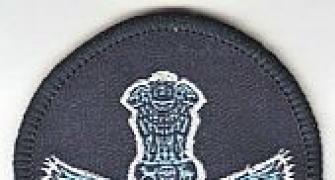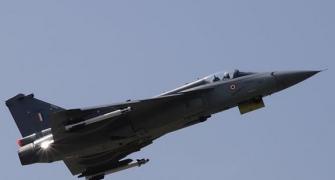 The Indo-Russian project to jointly design a transport aircraft for militaries of both nations kicked off in Moscow on Monday, where 30 engineers from Hindustan Aeronautics Limited began working with their Russian counterparts from the United Aircraft Corporation on the $600-million project.
The Indo-Russian project to jointly design a transport aircraft for militaries of both nations kicked off in Moscow on Monday, where 30 engineers from Hindustan Aeronautics Limited began working with their Russian counterparts from the United Aircraft Corporation on the $600-million project.
India and Russia are also collaborating in a $6-billion project to build an advanced fighter called the Fifth Generation Fighter Aircraft.
"Our team in Moscow informed us they are now functional at the special design facility that Russia has set up," confirms NC Agarwal, the Chief Executive Officer of the joint venture company, called Multirole Transport Aircraft Limited, which will design the aircraft.
The MTA will be capable of carrying 15-20 tonnes of payload; or 80 paratroopers; or 60 stretchers and operate from airfields as difficult as Leh, in Ladakh, J&K.
After completing the design and testing of the MTA in 60 months, during which five prototypes will also be built, Russia and India will join hands in building 205 aircraft: 100 for the Russian Air Force (RAF); 45 for the Indian Air Force (IAF); and 60 for export.
For the IAF, the MTA would be a much-needed replacement for the already phased out AN-12 and the ageing AN-32 transport aircraft. The MTA will be a mid-way choice, being smaller than the AN-12, but bigger than the AN-32.
Both those aircraft were propeller-driven turboprops; the MTA will have a turbofan jet engine.
The choice of which engine to use, as also the various systems of the aircraft which would be bought off the shelf, would be decided jointly, based on economy as well as suitability.
New Delhi and Moscow signed an Inter-Governmental Agreement (IGA) in November 2007; after which HAL, UAC and MTA Ltd signed a General Contract, an umbrella document that defines the broad framework of the contract. Then came a $35-million contract for the Preliminary Design Phase (PDP), signed on October 12, 2012, which provided for a joint HAL-UAC team to work for the next 10 months in Moscow.
The team will formalize the MTA's configuration, basic performance, its various systems, the engines, and identify alternatives as well. This will be done to ensure that the RAF's and IAF's requirements are fully met.
While the PDP is being completed by September-October 2103, another contract will be signed for the Detailed Design Phase, in which both sides will take 48 months to complete the design, prototype production and flight-testing of the MTA in accordance with work shares that have been defined in the contract.
"India will carry out some 40 per cent of the design work, while Russia will do the remaining 60 per cent" says Agarwal. "But it will be a collaborative enterprise, since everything has to come together smoothly, without loss of time."
In production, which is expected to begin by end 2017, HAL and UAC will respectively manufacture a specified set of parts and modules for all 205 MTAs. However, the assembly of the IAF aircraft will be done at HAL, Kanpur; and the assembly of MTAs for the RAF from a production agency that Moscow nominates.
The crucial aspect of certification will be a collaborative exercise between the Indian military certification agency, CEMILAC and its Russian counterpart.
According to current plans, the MTA will also meet the certification specifications of the US Federal Aviation Authority, which is called FAR-25 (Federal Airworthiness Requirement -- 25), as well as the European JAR-25 (Joint Airworthiness Requirement -- 25). This will make the MTA more attractive to international buyers.








